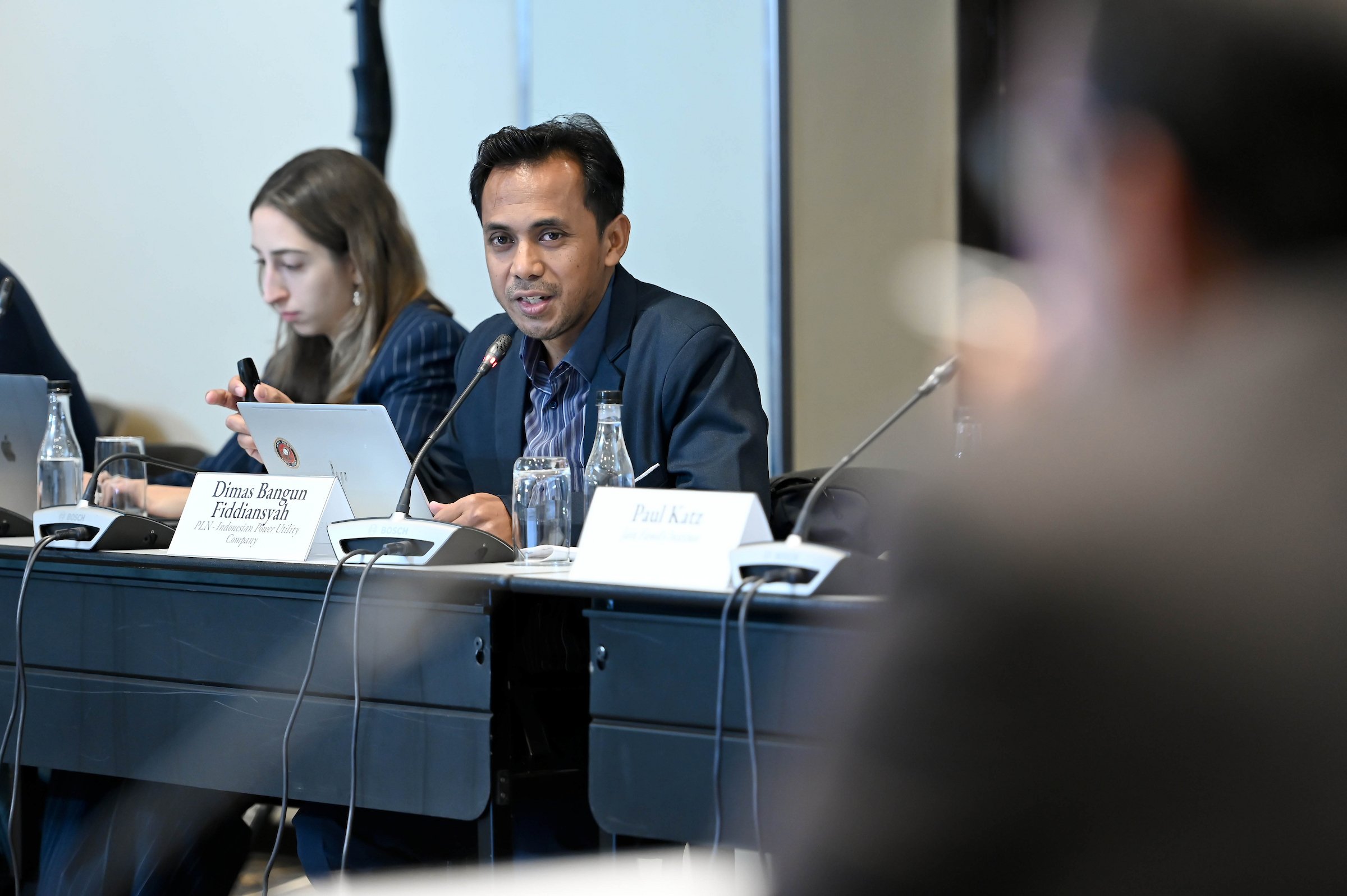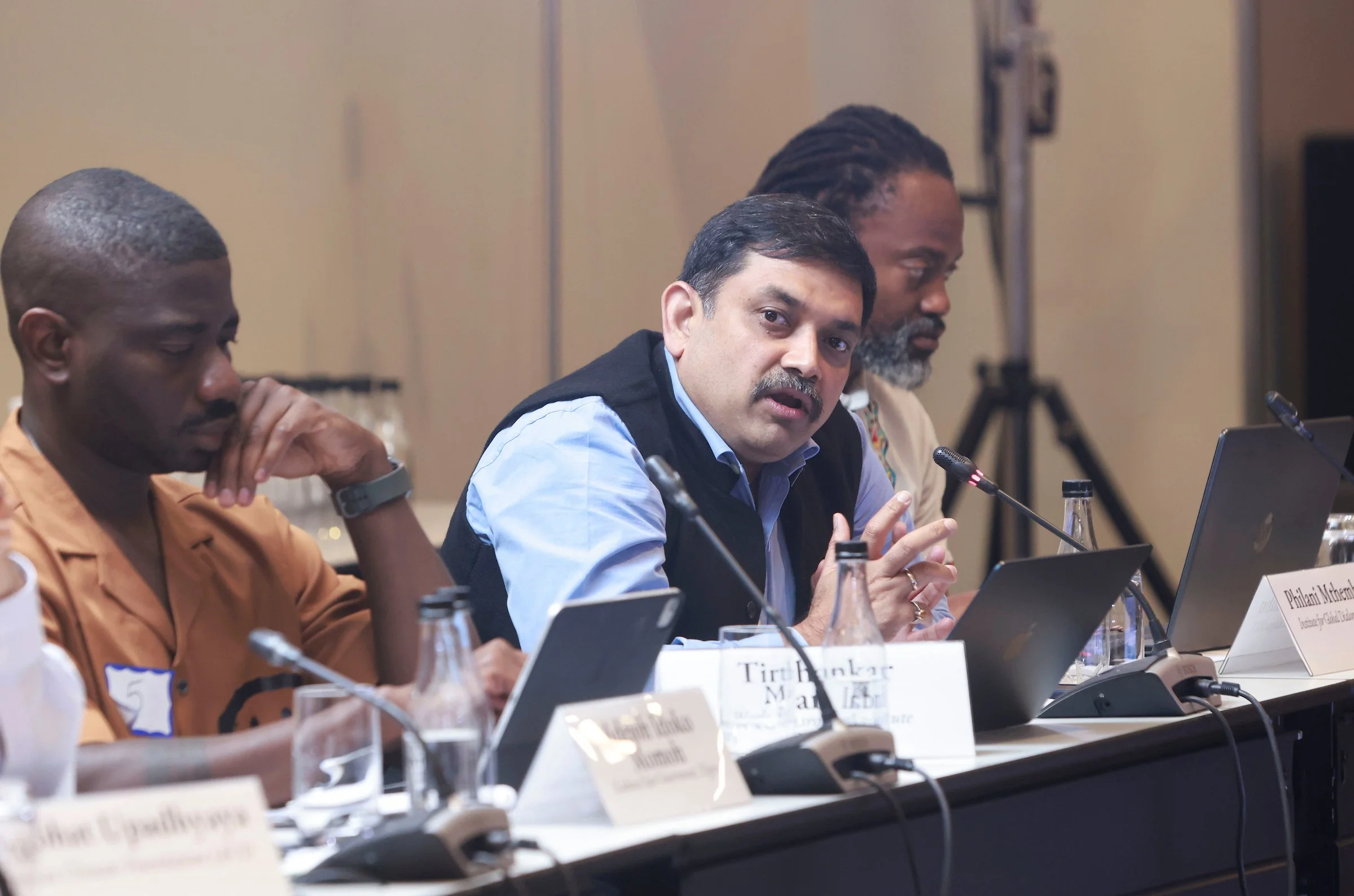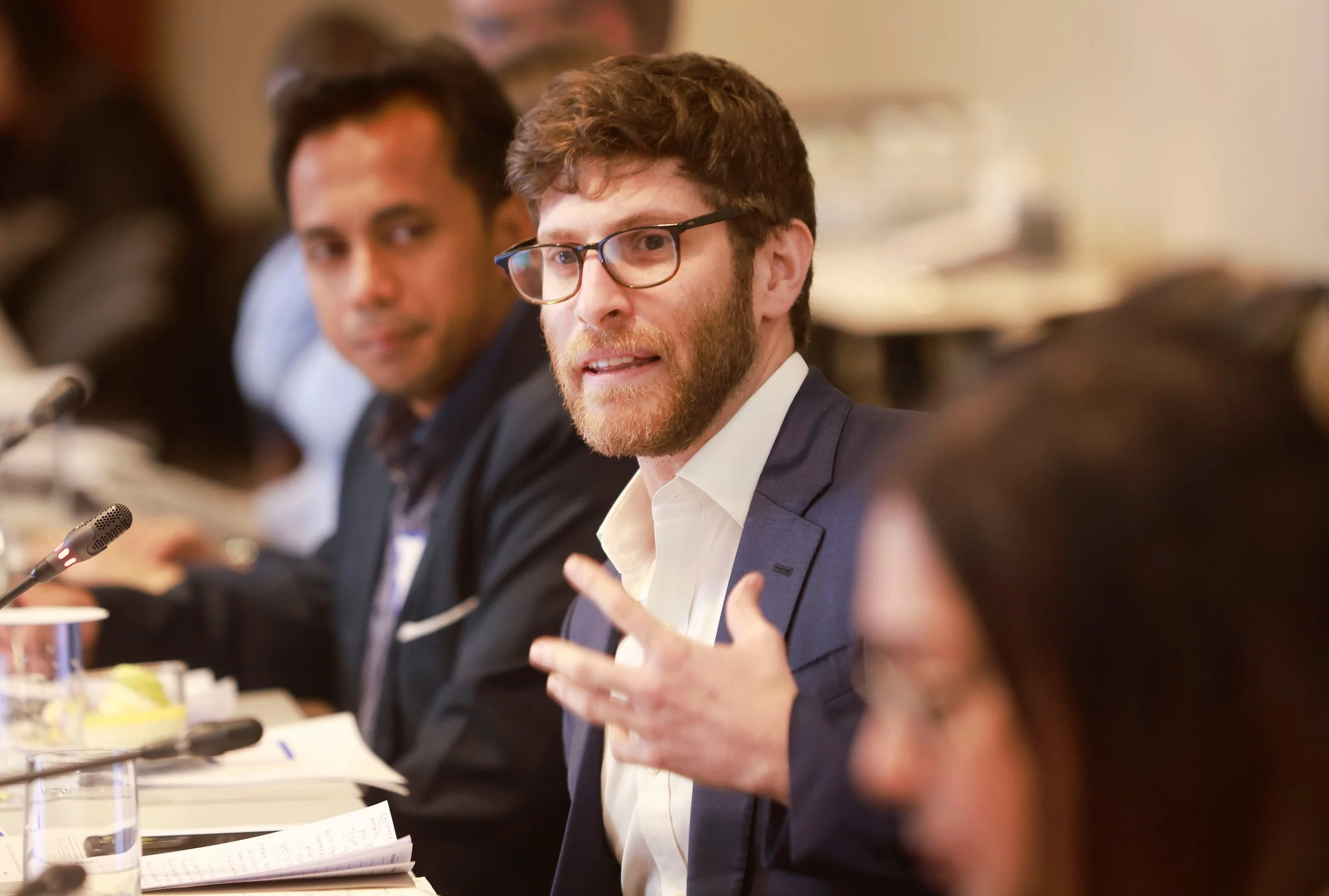On November 24, ORF America convened a closed-door workshop on the sidelines of the Cape Town Conversation as part of the IBSA+ Indonesia Green Transitions Initiative, an effort launched in March 2025 to strengthen collaboration among India, Brazil, South Africa (IBSA), and Indonesia on clean energy transitions. Building on the momentum of consecutive IBSA+Indonesia G20 presidencies, this initiative seeks to embed Global South priorities in the global energy transition agenda and advance practical cooperation across climate finance, technology development, and industrial competitiveness.
The workshop brought together 25 senior policymakers, energy experts, civil society leaders, and government representatives from across the four countries. The discussion aimed to identify actionable strategies and pathways for institutional cooperation and long-term competitiveness. This workshop built on the takeaways from the initiative’s June 2025 convening in Washington, D.C., during which participants mapped shared ambitions, energy transition achievements, and identified key areas for cooperation. Insights from that convening were published in an ORF America report, IBSA+Indonesia Energy Transitions: Mapping Shared Ambitions and Challenges. The workshop at Cape Town marked a shift from identifying challenges to recommending practical pathways for cooperation. As the South African G20 presidency came to a close, IBSA+ Indonesia stakeholders gathered to articulate the need for continued coordination that can shape global standards, mobilize financing, and accelerate a more just and resilient green transition.
Participants agreed that the next phase of the IBSA+ Indonesia initiative must move beyond dialogue and towards sustained, coordinated implementation using existing tools and frameworks. A central priority emerged — balancing global commitments with the development of national needs. Attendees emphasized operationalizing existing mechanisms, such as multilateral development bank project pipelines, blended finance platforms, and relevant G20 workstreams, by aligning timelines, clarifying roles, and coordinating country-level action, rather than creating new structures. Strengthening trade and economic linkages across IBSA+ Indonesia was also highlighted, with practical steps including harmonizing standards, easing market access procedures, and consolidating investment promotion to reinforce emerging value chains and anchor longer-term collaborations.
Another key theme was the need to set clear standards for technology and finance. Interoperable taxonomies, predictable ESG frameworks, and simplified certification processes were identified as essential to reducing transaction costs and unlocking affordable capital. Participants emphasized that IBSA+Indonesia could play a leading role by co-developing draft taxonomy modules aligned with common definitions of “green” activities, coordinating with stock exchanges to harmonize ESG disclosure standards, and piloting streamlined certification for renewable components across the four countries.
Micro, Small, and Medium Enterprises (MSMEs) inclusion emerged as a clear priority. Participants highlighted practical mechanisms such as pooled procurement systems, shared supplier databases, and simplified compliance pathways that allow small firms to meet standards without excessive administrative burdens. Integrating MSMEs into supply chains is essential for making the energy transition both equitable and scalable.
Finally, participants emphasized that genuine co-creation depends on access to people, knowledge, and resources. Expanding people-to-people exchanges, building shared knowledge platforms, and facilitating joint investment initiatives were seen as essential for deepening trust and accelerating learning. Operational steps discussed included launching fellowships and technical exchanges, while reducing visa and mobility barriers that remain a major constraint among these countries. Streamlined visa processes for researchers, engineers, and officials involved in green transition cooperation were strongly recommended. Coordinated R&D efforts and targeted skills development — such as joint testing facilities and cross-country vocational training — were also highlighted as important ways to translate these energy transition ambitions into concrete outcomes.
Taken together, these priorities create a clear roadmap for action — empowering IBSA+Indonesia to influence global standards, accelerate reforms at home, and lead a more just, competitive, and resilient green transition across the Global South.
Drawing on the insights from these workshops and complementary consultations, ORF America will release a special report in February 2026 outlining key action priorities and concrete pathways for IBSA+Indonesia coordination on green transitions.
Participants
A'aron Adah John, Center for Climate Action, Innovation and Engagement
Raul Alfaro-Pelico, Lancaster University
Caroline Vecci Arkalji, ORF America
Armando Ayala, Southern Transitions
Jenitha Badul, South Africa Department of Forestry, Fisheries and the Environment (DFFE)
Dimas Bangun Fiddiansyah, PLN - Indonesian Power Utility Company
Tatiana Cymbalista, Manesco Law Firm
Saliem Fakir, African Climate Foundation (ACF)
Danielle Grave, African Climate Foundation (ACF)
Lauren Hermanus, Southern Transitions
Adejoh Idoko Momoh, Kaduna State Government, Nigeria
Prayank Jain, The Sustainability, Equity, and Diversity Fund (SED)
Dhruva Jaishankar, ORF America
Paul Katz, Jain Family Institute
Tirthankar Mandal, World Resources Institute -India
Kenneth Milanzi, Absa Group
Philani Mthembu, Institute for Global Dialogue (IGD)
Medha Prasanna, ORF America
Shuva Raha, Council on Energy, Environment, and Water (CEEW)
Stefania Relva, E+ Energy Transition
Mariana Rondon, Plataforma CIPÓ
Nakul Sharma, Third Generation Environmentalism (E3G)
Prabhat Upadhyaya, African Climate Foundation (ACF)
Veda Vaidyanathan, Centre for Social and Economic Progress (CSEP)
Piyush Verma, ORF America
Julia Wanjiru Nikiema, Organisation for Economic Co-operation and Development (OECD)














